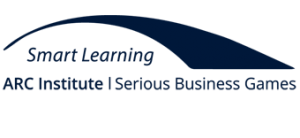Successful Audit Leadership and Audit Engagement Management | Increase Team Motivation | Coach high-performance teams
Pacific is an online business game course on audit leadership and team management in which users learn and apply strategies, techniques and tools to develop and improve their leadership and team management skills.
The game’s survival adventure setting challenges the training participant to escape with a team from a desert island where they are stranded following a plane crash. The chances of escaping with their lives will depend on the participants’s ability to manage and motivate the team.
Pacific has already been translated into several languages, including Spanish, English, French, German, Portuguese, Italian, Dutch and Chinese.




